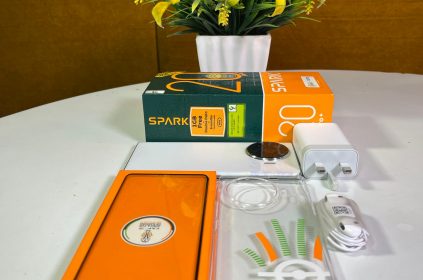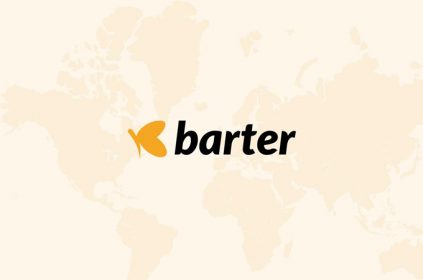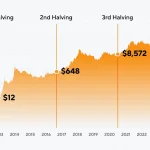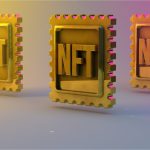What is a smart contract? Well, here is what you need to know.
You must have heard of digital currencies. Examples of digital currencies are bitcoin or Ethereum.
So, if you have heard of them, then you’ve probably also heard of blockchain.
Also, if you have heard of blockchain, then you should know the connection with smart contract.
What is Blockchain?
Blockchain is the global network of nodes, or computers, that allow digital currencies to be traded.
On the blockchain, every single digital currency transaction is recorded on a public ledger.
ALSO READ: Best Way To Learn Cybersecurity
And this is where smart contracts come in, as the mechanism that governs this decentralized, cutting-edge form of currency.
If you’re asking ‘what is a smart contract?’ then you’re certainly in good company.
This has become one of the most commonly asked questions in the digital space over the past year.
So let’s deep dive into what smart contracts are and how they are used.
What is a smart contract?
A smart contract allows digital currencies to be self-executed on a computer-controlled trusted network.
It also allows other forms of digital contract and transactions to undergo same process.
When were they invented?
Smart contracts were invented in 1994 by a cryptographer, Nick Szabo.
He invented smart contract as a means of recording digital contracts and their data in code.
The system activates the contract when it meets certain conditions.
The new approach acted to remove the need for third-party, trusted bodies – such as financial institutions.
The only issue was that the blockchain didn’t exist in 1994.
Although the theoretical concepts already existed then.
By 2009, blockchain was in place thanks to Bitcoin.
And several years later, other digital currencies such as Ethereum were in circulation, with smart contracts coming into play by 2015.
Key things to know about smart contracts:
1. Coders write smart contracts in computer code data.
2. Smart Contracts operate on the blockchain. This means that the coders store their data publicly in an accessible ledger and on a permanent basis.
3. Two or more people or entities can hold the contract.
4. The blockchain system processes all smart contract transactions.
Because of the blockchain system, smart contracts automatically send without the need of a third party to administer the transaction.
5. The agreed transactions will only take place when the agreed conditions of the contract are met.
What can you use smart contracts for?
The scope of smart contracts is as broad as the scope of blockchain itself – vast!
The most obvious example might relate to digital currencies.
However, smart contracts can also be used for the sales of physical goods.
Digital currency is what drives these transactions.
Here’s an example:
Say Chinedu wants to buy Wale’s car.
They make an agreement using bitcoin and a smart contract.
The smart contract is between Chinedu and Wale and it says ‘when Chinedu pays Wale 500 bitcoin, Wale will transfer the car ownership to Chinedu’.
The contract becomes permanent and unchangeable once the agreement is in place.
Chinedu can safely pay Wale the agreed price of sale without any trust issues.
Smart Contracts need no third parties such as banks, brokers or legal advisors.
No one pays any commissions, no delays result and there are no third-party administration issues.
Once the contract meets every necessary condition – e.g. the system automatically executes the contract after a party makes payment.
Already, people use smart contracts for insurance sales, financial services and trades as well as for legal processes.
Also, you can use smart contract for credit approval, crowdfunding arrangements and supply chain management.
Businesses can run their payroll using blockchain smart contracts and governments can manage voting processes fairly and accurately.
These are just some of the myriad examples that show the huge scope and application of this fascinating technology.
How blockchain makes smart contracts possible:
Trust:
You cannot change smart contracts once parties have entered agreement.
So, they are inherently trustworthy.
This is because the system records all smart contracts in the database of the lockdown.
Also, a vast number of people (decentralised) own this lockdown.
Moreover, no entity, government, company or individual controls it.
Enhanced cybersecurity:
Its decentralised nature also means that it’s basically impossible to hack the blockchain, vastly improving cybersecurity.
For a hacker to attack the blockchain itself or its smart contracts, it would need to be able to successfully hack into over 50% of the nodes on the system.
How do you initiate smart contracts?
People build smart contracts across a variety of blockchain platforms, such as NEO and Ethereum.
Coders develop smart contract in the platform’s coding language.
The demand for coders is rocketing because of this, and many other reasons though.
The world now focuses on the vast potential of digital currencies, blockchain and smart contracts.
How smart contracts could change our world:
Because smart contracts remove the need for third parties, they offer so many potential benefits.
For example:
Customers will no longer need to pay commission to intermediaries.
Consider how many third parties will play roles in complex transactions.
Example include a house sale and you can see just how much scope there is to strip out third-party middleman costs and time.
Meanwhile, transactions can be far quicker without middlemen and their own checks and processes.
Also, you can reduce fraud and improve cybersecurity.
This is possible because of the decentralised, permanent and open-access nature of blockchain.
Culled From Ironhack.com
Found this interesting? Share!


























 and then
and then